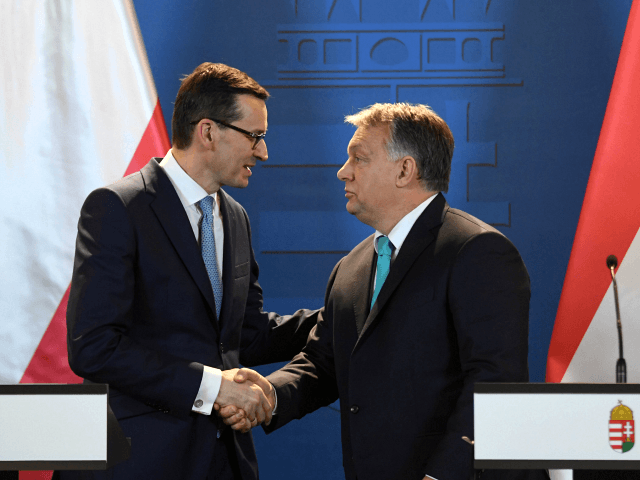Poland’s government, headed by the conservative Law and Justice Party, has said that it will veto proposed European Union sanctions against Hungary after the European Parliament voted in favour of triggering Article 7 against the country for the so-called failure to uphold “EU values”.
Poland’s foreign ministry said in a statement that Warsaw had “noted with concern [Wednesday’s] decision of the European Parliament supporting the motion to trigger Art. 7.1 of the Treaty on European Union against Hungary”.
“Every country has its sovereign right to make internal reforms it deems appropriate.
“Measures taken against Member States lead only to the deepening of divisions within the European Union, by increasing the current distrust of citizens in European institutions,” it added, affirming that Poland will “vote against any possible sanctions” that could be “imposed on Hungary”.
Members of European Parliament voted 448 for, 197 against, triggering the “nuclear option” Wednesday morning which could result in sanctions against the country or ultimately losing its voting rights.
The vote followed a report by Green MEP Judith Sargentini which accused the Hungarian government, led by Prime Minister Viktor Orbán’s Fidesz party, of interference in academic freedoms and abuse of migrants, amongst other accusations, as a result of the conservative government introducing laws that seek to minimise the influence of foreign-funded NGOs — directly affecting the interests of open borders financier-philanthropist George Soros.
The next step in the process for the globalist, progressive bloc is for the proposal to be sent to the leaders of the EU’s 28 member states for approval where they would need to pass by a four-fifths majority that there is a risk of breaching EU values.
At a later stage, the European Council could trigger a sanction mechanism.
All 18 of Poland’s conservative Law and Justice (PiS) MEPs voted against the measures, with Joanna Kopcinska, spokeswoman for PiS telling AFP that “We are in solidarity with the Hungarian people, who gave the Viktor Orbán government a very clear democratic mandate in recent elections.”
This is the first time that the Parliament has called on the Council of the European Union to enact Article 7; however in December 2017, the EU executive, the European Commission, launched Article 7 proceedings against Poland after the country enacted judicial reforms that the government argues are needed to clear out a system dominated by the country’s Communist era and to tackle corruption.
Both countries — with their conservative, patriotic, anti-mass migration governments — have supported each other against the aggressive diplomatic tactics of the EU with relation to the nation-state’s right to determine its own laws and immigration policies.
In a show of solidarity in February, the Hungarian parliament adopted a resolution in support of Poland, calling the triggering of Article 7 “unjustified” and accused the Commission of “exceeding its powers” saying it has “no right to meddle with the member states’ domestic affairs”.

COMMENTS
Please let us know if you're having issues with commenting.